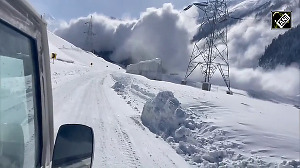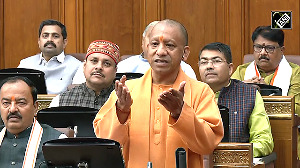New Zealand strike bowler Shane Bond will miss the side's opening match of the Champions Trophy against South Africa on Monday because of a back problem.
"It is disappointing. It is not good news before a big game," New Zealand captain Stephen Fleming told reporters on Sunday.
Bond suffered stiffness and restriction of movement in his back following a warm-up match on Friday, team spokesman Lindsay Crocker said.
The 31-year-old Bond's frequent breakdowns have been a cause for concern for New Zealand, winner of this competition in 2000.
"All we try to do with Shane is be conservative. We are looking, of course, not at just this tournament but the tournaments down the track, in particular the World Cup," Fleming said.
"If we can get him through to that, it would be nice. That's the long-term aim which is part of the reason why he's not playing tomorrow."
New Zealand also have injury concerns over all rounder Scott Styris.
"Styris had a hamstring twinge in the practice game," Fleming said. "He is in contention for selection."
Styris had been declared fit for the Champions Trophy only days before the side left for India after recovering from a back injury sustained during his stint with English county Middlesex.
New Zealand last played international cricket in March, and Fleming said that made it important for the side to gain momentum early.
"We can't replicate that in warm-up matches so we know starting well in the opening match against South Africa is important for us."
To achieve that, Fleming said, it was important for Nathan Astle, the side's most accomplished one-day batsman, to perform.
"He wins games when he scores runs. To have him firing is probably the most important thing. With the ball he can be pretty handy, especially in the middle overs."
The day-night match is to be played on a wicket next to the low-playing one on which West Indies were skittled out for 80 by Sri Lanka on Saturday.
"The pitch that we saw yesterday brings the Styris, Astles, the spinners into play. We have some resources to rely on and we think we can explore those in these conditions."








 © 2025
© 2025